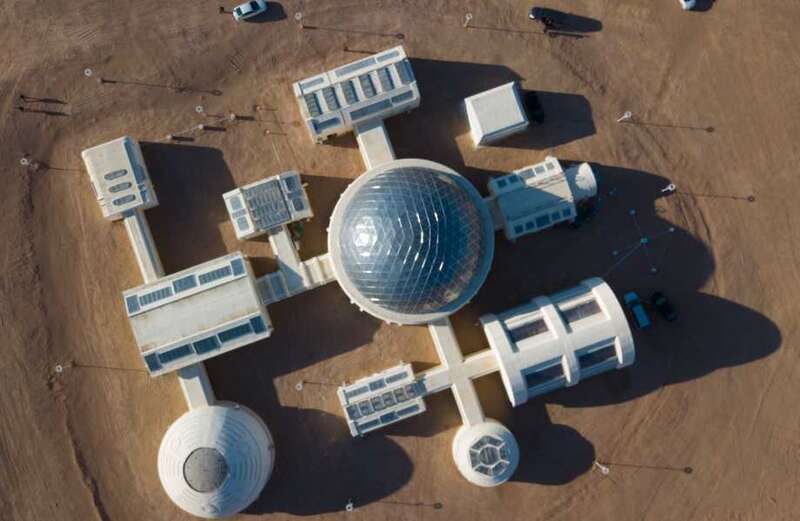AN ECCENTRIC businessman has unveiled a scheme to grow babies in space - starting with mice and eventually humans.
It forms part of a controversial Plan B for the human race, should nuclear fallout or a natural disaster extinguish life on Earth.

Egbert Edelbroek, who founded SpaceBorn United, expects to see ‘hundreds of thousands of babies born in space’ in his lifetime.
The Netherlands-based company announced last year that it was aiming to send mouse embryos into Earth's orbit via a UFO-shaped bio-satellite.
It seems absurd.
 Stacey Solomon says her life a 'mess' as she makes New Year's resolution
Stacey Solomon says her life a 'mess' as she makes New Year's resolution
But Edelbroek appears concerned that humans need a backup plan for our existence off-planet, whether that be Mars - like Elon Musk hopes - or another habitable world.
He is also intrigued by what effects growing in space could have, and whether it could give us newfound super-human abilities.
"Humanity needs to address the reproduction challenge, we need to learn how we can safely reproduce beyond Earth. That could be in any kind of habitat, in orbit, and eventually, probably also on Mars," Edelbroek told Dazed.
"There’s also a potential that exposing embryos to a different environment can trigger positive changes – epigenetic triggers that might even unlock hidden human potential."
He hopes to conceive the first animals in space in the Ark-like scheme.
But the company will first trial Assisted Reproductive Technology in Space, known as ARTIS, which will focus on testing the company’s unmanned bio-satellites.
The bio-satellites will have everything an embryo needs to grow, as well as simulate Earth-like gravity.
The first test flights are set to take place later this year.
It will pave the way to identifying “morally and biologically sustainable solutions for [human] space births," said Edelbroek.
Tests involving animal cells will come later, while tests with human cells are still pending regulatory approval, over the obvious ethical concerns.
 Amy Childs prepared to get cruelly mum-shamed after big decision about her twins
Amy Childs prepared to get cruelly mum-shamed after big decision about her twins
If permission to send human eggs and sperm into orbit is granted, the company will initiate an IVF procedure inside a bio-satellite.
The fertilised egg would then be frozen and sent back to Earth to continue developing.
"We assume we can get regulatory approval for working with human stem cell embryos," he added.
"The human stem cell embryos will hopefully be ride-sharing, so they could be on board a rocket that goes to the International Space Station or something similar."
Scientists don't yet know the potential harms that could be done to babies that have grown in space. Because it has never been done before.
"It’s much more relevant to look at the potential suffering for babies that have grown and become a child after being conceived in space," Edelbroek continued.
"You need to be absolutely sure that the risks are zero, or very very close to zero."
Space-grown babies could help populate off-planet colonies, like settlements on Mars.
"There are a lot of plans from space agencies and companies like SpaceX to prepare for permanent human settlements on Mars, and the key difference [compared to] Earth is gravity," he said.
"The gravity level on Mars, for example, is around 39% of what we are used to on Earth. We don’t know if that gravity level will be sufficient for healthy living, but most experts expect that adults will be fine. They will adjust.
"But when you look at developing embryos, foetuses, babies, children, that might be a different story."
We pay for your stories! Do you have a story for The Sun Online Tech & Science team? Email us at tech@the-sun.co.uk

































